Our Drug Rehabs San Diego Staff Says, “Recognize The Signs”
Our drug rehabs San Diego team knows recognizing the signs is important. Recognizing the signs of alcohol abuse can be pivotal in seeking timely intervention and support. Some of the most apparent indicators include an increased tolerance for alcohol, necessitating greater amounts to achieve the same effects. Individuals may also engage in risky behaviors while under the influence, such as driving drunk or engaging in unsafe sexual practices. Another critical sign is neglect of responsibilities at work, school, or home due to drinking habits. Social withdrawal or activities that were once enjoyed may be forsaken in favor of drinking. Furthermore, continued use of alcohol despite clear evidence of its detrimental effects on one’s health, relationships, and overall well-being signifies a serious problem. These behaviors reflect a problematic pattern that warrants attention and likely intervention to prevent further harm.
- Approximately 14.4 million adults in the United States, aged 18 and older, had alcohol use disorder (AUD) in 2018.
- Globally, alcohol misuse is the seventh leading risk factor for premature death and disability as of 2016.
- It’s estimated that 95,000 people (approximately 68,000 men and 27,000 women) die from alcohol-related causes annually in the U.S.
- Among those aged 12 to 20, approximately 4.2 million reported engaging in binge drinking at least once over the past month.
- Nearly 10% of children in the U.S. live with a parent with alcohol problems.
- In 2019, alcohol-impaired driving fatalities accounted for 28% of all driving fatalities in the U.S.
Common Excuses of a Family Member That is an Alcoholic
The Lilac Recovery drug rehabs San Diego medical staff knows when people grappling with alcoholism often devise various strategies to conceal their drinking habits from friends, family, and employers. One common tactic is the use of breath mints or gum to mask the smell of alcohol on their breath. Some may drink alone or in secret, avoiding social situations where their excessive alcohol consumption could be noticed. Additionally, they might stash alcohol in unlikely places—such as in their car, office, or hidden spaces around the house—to drink discreetly throughout the day. Fabricating excuses for their behavior or the consequences of their drinking, such as attributing frequent absences or injuries to other causes, is another method used to deflect attention from their alcohol use. These behaviors are often accompanied by denial, where individuals downplay the extent of their drinking or its impact on their life, further complicating the path to recognizing the problem and seeking help.
Ambivalence towards drinking is a common sentiment among those who may be on the brink of alcoholism or already struggling with it. This state of mixed feelings can manifest as a persistent tug-of-war between the desire to cut back on alcohol consumption and the compelling urge to drink. People in this position often recognize, at least partially, the negative consequences their drinking has on their health, relationships, and daily functioning. Yet, the thought of life without alcohol seems daunting, if not impossible. This ambivalence is further complicated by societal norms and pressures that glorify alcohol consumption, making the decision to seek help or reduce drinking seem like an overreaction to what many consider a normal part of life. Consequently, this inner conflict can delay the acknowledgement of a drinking problem and hinder the initial steps towards recovery.
Impact of Family Members that are Alcoholics
The drug rehabs San Diego counselors weigh in on the impact alcoholics have on the family. The impact of alcoholism on families can be profound and far-reaching, creating a ripple effect that touches every member in some way. Families may experience financial strain as significant amounts of money are diverted towards alcohol consumption, potentially leading to debt or inability to meet basic needs. Emotional turmoil is also common, with family members often feeling a mixture of anger, shame, guilt, and fear over their loved one’s drinking habits.
Children, in particular, may suffer from neglect or emotional abuse, impacting their psychological development and possibly predisposing them to substance abuse issues in their own futures. The unpredictability of an alcoholic’s behavior can disrupt family dynamics, leading to a breakdown in communication and trust. Marriages and partnerships are strained, sometimes to the point of separation or divorce, as the non-alcoholic spouse struggles with the burden of their partner’s addiction. The cycle of alcoholism within families can be difficult to break without collective acknowledgment of the problem and a concerted effort to seek help and support.
Inpatient Drug Rehabs San Diego, Alcohol Detox Centers San Diego and Intensive Outpatient Programs: The Path Toward Recovery
Lilac alcohol detox centers San Diego is the starting point for recovery. Detoxification, or detox, marks the first critical step in the process of recovering from alcoholism. It involves a medically supervised withdrawal that safely manages the acute physical symptoms of withdrawal from alcohol. For many, the severity of withdrawal symptoms can be overwhelming, potentially dangerous, and, in some cases, life-threatening. Professional detox programs provide medical monitoring and can administer medications to reduce withdrawal symptoms, ensuring the individual’s safety during this challenging phase.
Following detox, our inpatient drug rehabs San Diego treatment programs offer an immersive rehabilitation experience. Patients reside at a treatment facility for the duration of their program, which can range from a few weeks to several months. This environment shelters individuals from external triggers and influences that contribute to their alcoholism, allowing them to focus entirely on their recovery. Inpatient programs are comprehensive, including therapy, counseling sessions, and activities designed to address the psychological aspects of addiction. The intensive nature of these programs helps lay a strong foundation for sober living.
Intensive Outpatient Programs (IOP) serve as a bridge between inpatient treatment and the return to everyday life. IOPs allow individuals to maintain their daily responsibilities, such as work or school, while still receiving a high level of care and support. These programs typically include multiple therapy sessions each week, focusing on continuing the work started in detox and inpatient treatment. IOPs emphasize relapse prevention, coping strategies, and support network development to assist individuals in navigating the complexities of sober living in the real world.
Each step in this continuum of care plays a vital role in the overall recovery process. By addressing both the physical and psychological facets of alcohol addiction, detox, inpatient treatment, and IOPs equip individuals with the tools, skills, and support necessary to achieve long-term sobriety and improve their quality of life.
Lilac Recovery Center Drug Rehabs San Diego Success Rate With Treatment
Lilac Recovery Center drug rehabs San Diego has helped many achieve long term sobriety. Call our alcohol detox centers and California drug rehabs now at 442-341-6400. We accept many health insurances and can verify on the phone. The success rates of seeking treatment for alcoholism are multifaceted, reflecting a spectrum of outcomes that depend heavily on individual factors, the type of treatment received, and the quality of post-treatment support. Studies indicate that treatment can significantly increase the possibilities of long-term sobriety when compared to individuals who attempt to quit on their own. Notably, the commitment of the individual to their recovery process plays a crucial role in the effectiveness of the treatment.
Adherence to the treatment plan, engagement in the recovery community, and ongoing participation in support groups such as Alcoholics Anonymous significantly contribute to positive outcomes. Additionally, the integration of comprehensive treatment approaches that include both medical and psychological support tend to yield the highest success rates. While relapse is a common part of the recovery process, it does not signify failure but rather an opportunity to reassess and strengthen one’s recovery strategy. Data suggests that approximately 50 to 60 percent of individuals who seek treatment for alcohol dependency maintain long-term sobriety, with many experiencing significant improvements in their health, relationships, and overall quality of life.
The road to recovery from alcoholism is fraught with challenges, yet it is also marked by profound potential for transformation and healing. By navigating the stages of recovery with dedication and the right support, individuals can reclaim their lives, restore their relationships, and pave the way for a healthier, sober future. It underscores the power of resilience and the importance of seeking help, highlighting that, despite the hurdles, lasting change is within reach. Call Lilac Recovery Center drug rehabs San Diego now at 442-341-6400 we accept most health insurances and can get you in today.




